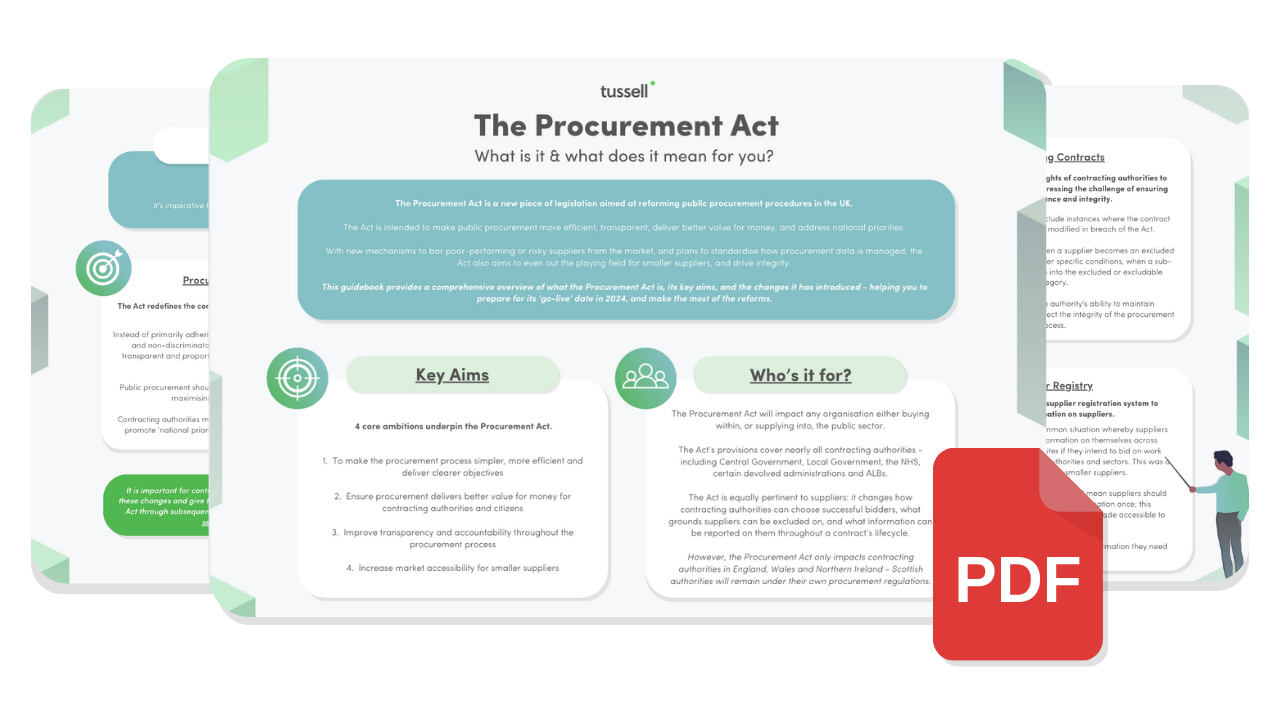A competitive public procurement market is essential to delivering high-quality public services. One of the ways in which government can encourage a competitive marketplace is by ensuring all firms bidding for contracts are on an equal footing. Key to this is providing sufficient time for suppliers to prepare bids for public contracts. EU guidance suggests that buyers should give a minimum of 35 days for suppliers to respond.
Providing enough time for companies to bid for government contracts is a win for all stakeholders: companies large and small benefit from being given sufficient time to prepare a well thought out bid; government benefits from having as wide a range of suppliers to choose from as possible; and citizens benefit from the reduction in cost and improvements in service quality that come from a competitive marketplace.
Here at Tussell, we've mined historical data from Contracts Finder and Tenders Electronic Daily (TED) to analyse the amount of time Central Government departments are giving suppliers to bid for contracts. This is the first in a series of data-driven analyses examining the compliance by department with transparency regulations to which they are subject, using our proprietary database of cleansed and normalised public contract notices worth £3 trillion going back to the start of 2012.
* Analysis only includes notices where the bid deadline date is after the date published, but by no more than one year. Also only includes departments that published more than 5 contract notices in 2018 - excluding HM Treasury and DCLG.
On average in 2018, Central Government departments gave suppliers only 26 days (15 working days) to respond to requests for tender - a full nine days less than the EU guidelines. On aggregate, not a single department met the 35-day guideline.
Four departments gave suppliers on average 30 or more days to respond. Three gave companies less than 20 days to respond to tenders. This includes the Department for Transport which on average gave suppliers only 18 days to respond. The department - and its arms lengths bodies - published six contract notices worth over £1m that gave suppliers only fourteen days. The Ministry of Justice, despite performing relatively well on this metric on average, gave suppliers only 13 days to apply for its £4bn Prison Operators Framework.
Looked at as a trend since the start of 2015, the chart above shows that Central Government is actually giving suppliers less and less time to submit bids. A 28-day average in 2016 has decreased to 26 days in 2018 - a 7% decrease.
It's important to state that this analysis is only possible because of the government's commitment to openness in public procurement. While there is clearly still work to be done, it's worth remembering that the UK government is in general highly transparent even as compared to its peers in other rich, democratic countries.
However, if the government is really serious about making its supply chain more open and competitive, it needs to urgently address this worrying trend. The first step to tackling this problem is to systematically measure it. By filling this gap, data-driven analysis such as ours is vital to hold the government to account. Tussell's unique public sector business intelligence platform enables analysis of the government marketplace by companies, public sector bodies and anyone interested in how the government spends taxpayers' money. Get in touch with us today to see how our insights into public spending can help you reach your goals.












